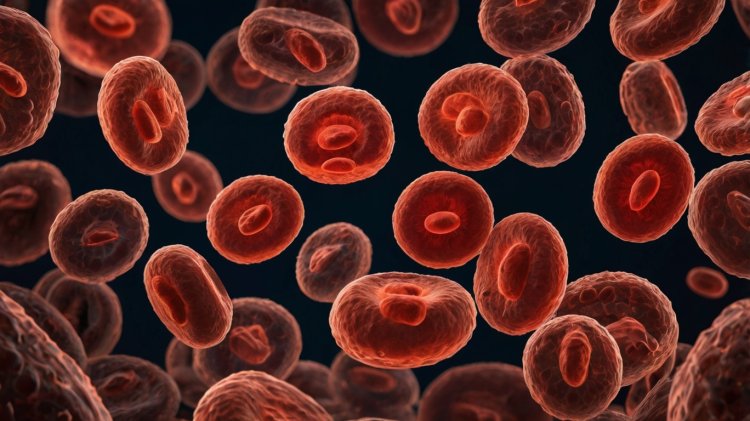How Genetics Shapes Blood Type: ABO, Rh, and Kell Systems Explained
Explore how genetics determines blood type, including the ABO, Rh, and Kell systems. Learn about inheritance patterns, rare variants, and why blood type matters for health and medicine.

Blood type is a fundamental aspect of human biology, intricately tied to genetics. Understanding how genetics determines blood type and the implications of these variations can provide valuable insights into health, medical compatibility, and evolutionary patterns. This guide explores the genetic basis of blood type, key blood group systems, and their significance.
The Genetic Foundation of Blood Type
Blood type is determined by specific genes inherited from biological parents. These genes encode proteins and antigens found on the surface of red blood cells (RBCs). The most studied blood group systems include ABO, Rh, and Kell. While there are 47 recognized blood group systems and 52 genes involved, the ABO system remains the most prominent.
Genetics of the ABO Blood Type
The ABO blood group is determined by the ABO gene located on chromosome 9. It encodes enzymes responsible for adding specific sugar molecules to the RBC surface, defining the four main blood types:
-
Type A: RBCs have A antigens; plasma contains anti-B antibodies.
-
Type B: RBCs have B antigens; plasma contains anti-A antibodies.
-
Type AB: RBCs carry both A and B antigens; plasma has no anti-A or anti-B antibodies.
-
Type O: RBCs lack A and B antigens; plasma contains both anti-A and anti-B antibodies.
Inheritance Patterns
Each person inherits two alleles (one from each parent), with A and B being dominant over O. The combinations result in the following possibilities:
| Parent 1 \ Parent 2 | A | B | O |
|---|---|---|---|
| A | A | AB | A |
| B | AB | B | B |
| O | A | B | O |
For example, a parent with type A (AO) and another with type B (BO) can produce offspring with any of the four blood types.
Rare ABO Variants
One notable variant is the Bombay phenotype, a rare mutation on chromosome 19 that prevents the production of the H antigen required for A and B antigens to form. Individuals with this phenotype appear to have type O blood but can only receive blood from others with the same condition.
Genetics of the Rh Blood Type
The Rhesus (Rh) system, defined by the presence or absence of the D antigen, is the second most important blood group system. Rh status is classified as:
-
Rh-positive: D antigen is present.
-
Rh-negative: D antigen is absent.
Inheritance Patterns
Rh inheritance follows an autosomal dominant pattern, meaning that one Rh-positive allele is sufficient for Rh-positive blood. To be Rh-negative, an individual must inherit two Rh-negative alleles (one from each parent). The genes responsible for Rh antigens are located on chromosome 1.
Genetics of the Kell Blood Type
The Kell blood group, governed by the KEL gene on chromosome 7, is crucial in transfusion medicine. The most clinically significant antigens are K (Kell) and k (Cellano). These antigens are codominant, meaning individuals can express both. While less commonly discussed than ABO and Rh, Kell antigens can cause complications in blood transfusions and pregnancies.
Why Blood Type Matters
Understanding your blood type has critical implications for:
-
Blood Transfusions: Receiving incompatible blood can trigger severe immune reactions, emphasizing the importance of matching donor and recipient blood types.
-
Pregnancy: Rh incompatibility between a birthing parent and baby can cause hemolytic disease of the fetus and newborn (HDFN).
-
Health Risks: Research links non-type O blood types to higher risks of thrombotic events, such as blood clots, and certain diseases.
Frequently Asked Questions
Can Blood Types Skip Generations?
Yes. Recessive alleles, such as O or Rh-negative, can remain hidden for generations and resurface if inherited from both parents.
Are Certain Blood Types More Common?
Yes. Blood type distribution varies globally. For instance:
-
Type O: Most common in Hispanic, Native American, and Black populations.
-
Type A: More prevalent in parts of Europe.
-
Type B: Common in India and China.
-
Type AB: Rarest, but more frequent in Japan and Korea.
Can Blood Type Change?
While rare, blood type changes can occur due to:
-
Leukemia or Cancer: Loss of antigen expression on RBCs.
-
Bone Marrow Transplants: Recipient’s blood type temporarily or permanently matches the donor’s.
Does Blood Type Affect Longevity or Disease Risk?
Studies suggest links between blood type and health. For example:
-
Type O: Lower risk of blood clots but higher susceptibility to ulcers.
-
Type A: Potentially less healthy aging and higher cardiovascular risks.
Conclusion
Blood type is a genetically inherited trait that influences critical aspects of health and medicine. The ABO, Rh, and Kell systems are central to understanding blood compatibility and associated risks. Knowing your blood type helps in medical emergencies, enhances awareness of potential health risks, and can even offer insights into your genetic ancestry. For a deeper understanding of your blood type and its implications, consult a healthcare professional







